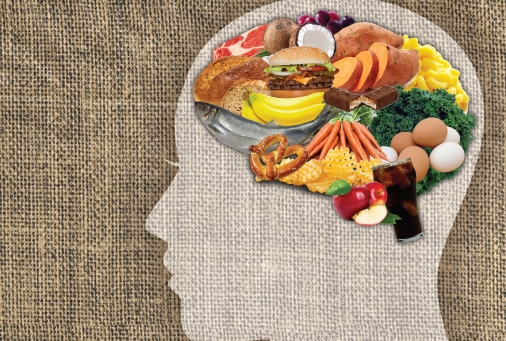Mental Health Matters
Mental health describes a level of psychological well-being, or an absence of a mental disorder. Mental health may include an individual's ability to enjoy life, and create a balance between life activities and efforts to achieve psychological resilience. Mental wellness is generally viewed as a positive attribute, such that a person can reach enhanced levels of mental health, even if the person does not have any diagnosed mental health condition. This definition of mental health highlights the capacity to live a full and creative life, and the flexibility to deal with life's inevitable challenges. When it comes to the mind-body connection, there has been much research to suggest that our thoughts and beliefs can actually have tangible effects on the physical body. This can have a very powerful, positive impact on our lives, but it also has the potential to cause unwelcomed health issues if we allow negative thoughts, feelings, and emotions to fester or turn into self-limiting beliefs. One way that we can actively take control of the narrative and thus ensure that the mind is having a positive influence on the body is through cultivating mental awareness.
Importance of Mental Awareness?
The concept of mentality is the mindset, temperament or "the way of thinking" of an individual. Basically, it's being aware of your way of thinking. In the context of the relationship between mental awareness and physical health, let's consider it through the lens of developing a connection with your mentality. An aspect of mental awareness is being in touch with your thoughts, once this connection is developed it can often provide insight into your deepest desires and emotions. In a busy day, we tend to push down ‘inconvenient’ negative emotions to deal with “later,” but we don’t realize is that there can be health consequences to ignoring these signals and allowing negative feelings to pile up. This can result in feeling stressed or having headaches and muscle tension that seemingly come out of nowhere. When we stop to become aware of our mental state, we will understand that these physical symptoms are not random at all and can be mitigated through strengthening the mind-body connection.

Mental Health Benefits of Exercise
Many of us hit the gym or run to improve cardiovascular health, build muscle, and of course, get a god-like body, but working out has above-the-neck benefits, too. For the past decade or so, scientists have pondered how exercising can boost brain function. Regardless of age or fitness level (yup, this includes everyone from mall-walkers to marathoners), studies show that making time for exercise provides some serious mental benefits.
-
Reduce Stress
-
Improve Self-Confidence
-
Prevent Cognitive Decline
-
Boost Brainpower
-
Alleviate Anxiety
-
Increase Relaxation
-
Tap Into Creativity
-
Sharpen Memory
Mental and Emotional Aspects of Well-Being
Mental health and emotional health are sometimes used interchangeably, however, they differ in meaning. Mental health refers to your ability to process information. Emotional health, conversely, refers to your ability to express feelings which are based upon the information you have processed. Collectively, mental and emotional health refers to your overall psychological well-being. It includes the way you feel about yourself, the quality of your relationships, and your ability to manage your feelings and deal with difficulties. Good mental health isn't just the absence of mental health problems. Being mentally and emotionally healthy is much more than being free of depression, anxiety, or other psychological issues. Rather than the absence of mental illness, mental and emotional health refers to the presence of positive characteristics. Not feeling bad is not the same as feeling good. While some people may not have negative feelings, they still need to do things that make them feel positive in order to achieve optimal mental and emotional health.
People who are mentally and emotionally healthy have:
-
A sense of contentment.
-
A zest for living and the ability to laugh and have fun.
-
The ability to deal with stress and bounce back from adversity.
-
A sense of meaning and purpose, in both their activities and their relationships.
-
The flexibility to learn new things and adapt to change.
-
A balance between work and play, rest and activity, etc.
-
The ability to build and maintain fulfilling relationships.
-
Self-confidence and high self-esteem.
These positive characteristics of mental and emotional health allow you to participate in life to the fullest extent possible through productive, meaningful activities and strong relationships. These positive characteristics also help you cope when faced with life's challenges and stresses.

The role of resilience in mental and emotional health
Being emotionally and mentally healthy doesn’t mean never going through bad times or experiencing emotional problems. We all go through disappointments, loss, and change. And while these are normal parts of life, they can still cause sadness, anxiety, and stress. The difference is that people with good mental and emotional health have an ability to bounce back from adversity, trauma, and stress. This ability is called resilience. People who are emotionally and mentally healthy have the tools for coping with difficult situations and maintaining a positive outlook. They remain focused, flexible, and creative in bad times as well as good. One of the key factors in resilience is the ability to balance stress and your emotions. The capacity to recognize your emotions and express them appropriately helps you avoid getting stuck in depression, anxiety, or other negative mood states. Another key factor is having a strong support network. Having trusted people you can turn to for encouragement and support will boost your resilience in tough times. Physical health is connected to mental and emotional health and taking care of your body is a powerful first step towards mental and emotional health. The mind and the body are linked. When you improve your physical health, you’ll automatically experience greater mental and emotional well-being. For example, exercise not only strengthens our heart and lungs, but also releases endorphins, powerful chemicals that energize us and lift our mood. The activities you engage in and the daily choices you make affect the way you feel mentally, physically and emotionally.

-
Get enough rest
To have good mental and emotional health, it’s important to take care of your body. That includes getting enough sleep. Most people need seven to eight hours of sleep each night in order to function optimally.
-
Practice good nutrition.
The subject of nutrition is complicated and not always easy to put into practice. But the more you learn about what you eat and how it affects your energy and mood, the better you can feel.
-
Exercise to relieve stress
Exercise is a powerful antidote to stress, anxiety, and depression. Look for small ways to add activity to your day, like taking the stairs instead of the elevator or going on a short walk. To get the most mental health benefits, aim for 30 minutes or more of exercise per day.
-
Sunlight every day.
Sunlight lifts your mood, so try to get at least 10 to 15 minutes of sun per day. This can be done while exercising, gardening, or socializing.
-
Limit alcohol.
These are stimulants that may unnaturally make you feel good in the short term, but have long-term negative consequences for mood and emotional health.
Nutritional Psychology
Improve mental and emotional health by taking care of yourself in order to maintain and strengthen your mental and emotional health, it’s important to pay attention to your own needs and feelings. Don’t let stress and negative emotions build up. Try to maintain a balance between your daily responsibilities and the things you enjoy. If you take care of yourself, you’ll be better prepared to deal with challenges if and when they arise. Taking care of yourself includes pursuing activities that naturally release endorphins and contribute to feeling good. In addition to physical exercise, endorphins are also naturally released when we:
-
Do things that positively impact others
Being useful to others and being valued for what you do can help build self-esteem. Practice self-discipline. Self-control naturally leads to a sense of hopefulness and can help you overcome despair, helplessness, and other negative thoughts.
-
Practice self-discipline.
Self-control naturally leads to a sense of hopefulness and can help you overcome despair and other negative thoughts.
-
Learn or discover new things.
Try taking an adult education class, join a book club, visit a museum, learn a new language, or simply travel somewhere new.
-
Enjoy the beauty of nature
Studies show that simply walking through a garden can lower blood pressure and reduce stress.
-
Manage your stress levels.
Stress takes a heavy toll on mental and emotional health, so it’s important to keep it under control. While not all stressors can be avoided, stress management strategies can help you bring things back into balance.
-
Limit unhealthy mental habits
Try to avoid becoming absorbed by repetitive mental habits—negative thoughts about yourself and the world that suck up time, drain your energy, and trigger feelings of anxiety, fear, and depression.
better version of YOU!






